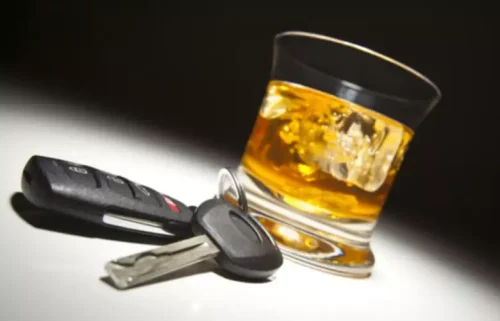
If you can’t stop heavy drinking or binge drinking, then you need treatment for alcohol addiction. It takes more than a period of abstinence to stop an alcohol use disorder. Acute tolerance occurs when heavy drinkers develop a tolerance to alcohol’s effects after one drink or over the course of a single episode of drinking. While there is no way to treat this condition, your healthcare provider can talk with you about ways to reduce the negative effects of alcohol intolerance.

Why Some People Develop Alcohol Intolerance
“People will get more drunk on an empty stomach, and how drunk you get depends on the concentration of what you drink and the size of the glass it comes in,” he explains. (Or maybe you’ve used lockdown to explore sobriety can you build a alcohol tolerance or mindful drinking, in which case may we direct you to our top non-alcoholic drinks round-up?). Many people don’t always know how much alcohol they drink and whether their drinking could have any impact on their health.
How Does Increased Alcohol Tolerance Affect a Person?
- This is because your brain and body have adapted to the presence of alcohol and have compensated in several ways to function well when intoxicated.
- One of the criteria used to determine an AUD diagnosis is that of alcohol tolerance.
- This process is simple to understand but hard to follow, yet it works miracles in reducing alcohol tolerance.
It will keep you in the good books of everyone at the party, and you will receive many more invitations in the future. Research published at the University of Rochester suggests that consuming too much alcohol in a shorter period of time will make the stomach and liver less efficient. Consequently, you will become more tired and lose control over yourself. Other times, it means enrolling in inpatient alcohol treatment and medical detox to help with alcohol withdrawal, followed by an aftercare program.
Metabolic Tolerance Can Lead to Liver Damage

Studies have found that women get drunk faster and feel stronger effects than men. This is because they have smaller bodies and a higher proportion of fat than men, so their bodies need fewer drinks to induce insobriety. “Additionally, a lot of full-strength alcohol producers are now making non-alcoholic products, so their brands are on these [non-alcoholic] beverages.
Reverse alcohol tolerance is a critical state for the liver and can lead to other health complications. The danger of alcohol tolerance is that your blood alcohol content level continues to rise and increase the dangers of overdose, even if you don’t feel the effects of alcohol. It may seem unfair that an inherited condition keeps you from enjoying the occasional glass of wine or beer.
- Aim to have one glass of water for every alcoholic beverage you consume.
- Those with lower alcohol tolerances do not need to worry, but should still be aware of their limitations and drink appropriately if they choose to drink.
- Have you ever noticed that when you’re tired, one drink can hit you like it was three?
- There’s a fine line between “life of the party” and “obnoxious idiot.” Don’t get into some kind of alcoholic pissing-contest with your coworkers or relatives—that is a lose-lose situation.
She says the side effects are often temporary and resolve as the patient adjusts to the medication. When you are tired and try to drink faster, one serving might act like multiple servings. This is a simple rule, since tiredness will lead to more drunkenness and you losing control faster. Sometimes, treatment means evidence-based therapy with a trained addiction counselor.
If you’re going to drink, keep these expert-recommended tips in mind
This results in a reduction of alcohol in the bloodstream, alongside its intoxicating effects. Similar to functional tolerance, as metabolic tolerance develops, a greater amount of alcohol is needed to experience the same effects as you experienced initially. But when we drink in a new environment – such as going to the pub for the https://ecosoberhouse.com/article/alcohol-and-anxiety-can-drinking-cause-panic-attacks/ first time in six months – the compensatory response is not activated, making us more prone to experiencing alcohol’s effects. So even if you’ve still been consuming large amounts of alcohol at home during lockdown, you may find you feel alcohol’s effects to a greater degree when drinking the same amount as normal in a pub or bar.
Risky Situations
How Long Does It Take To Get A Tolerance To Alcohol?

